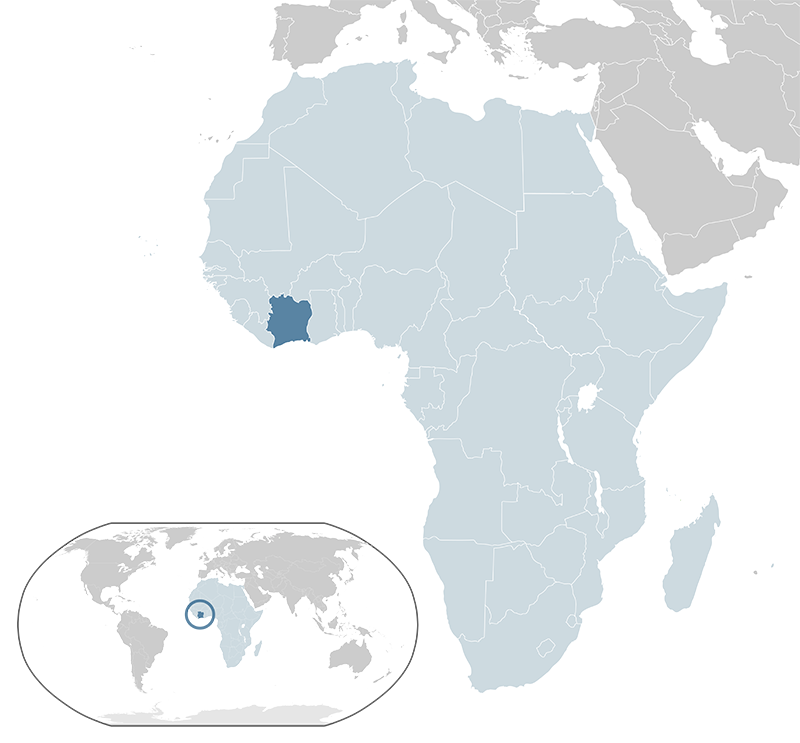
- Population:
- 31,934,000
- Religion:
- Islam
Côte d'Ivoire was historically home to various West African kingdoms before becoming a French colony in the late 19th century. It gained independence in 1960 and became one of Africa’s most prosperous economies due to its cocoa and coffee exports. However, political instability and civil wars in the early 2000s disrupted its growth. Today, Côte d'Ivoire is working toward economic recovery and regional stability.
Côte d'Ivoire, also known as Ivory Coast, is a country located on the southern coast of West Africa. It is bordered by Liberia and Guinea to the west, Mali and Burkina Faso to the north, Ghana to the east, and the Gulf of Guinea to the south. Covering an area of approximately 322,463 square kilometers, it has a population of about 31.5 million people as of 2024. The political capital is Yamoussoukro, while the largest city and economic hub is Abidjan. The official language is French, with numerous indigenous languages also spoken. Côte d'Ivoire operates as a unitary presidential republic. The economy is one of the largest in West Africa, primarily based on agriculture, with the country being the world's largest producer of cocoa beans, as well as significant exports of coffee and palm oil. Côte d'Ivoire is a member of the United Nations, the African Union, and the Economic Community of West African States.





